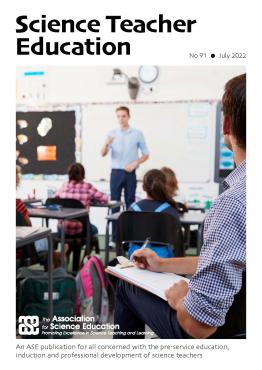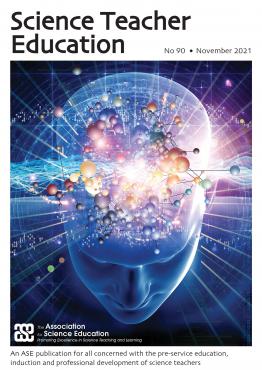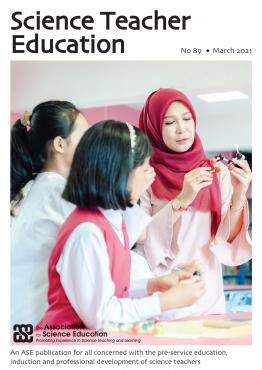Science Teacher Education 92
Issue 92 | Published November 2022

Overview
Many of the articles in this edition of STE have come from the ASE Futures conference, and the variety of themes reflects the varied and interesting roles that Futures members and STE readers have.
Jane Essex’s article looks at the tensions that trainee teachers can face when being asked to promote a rigorous science education based on excellence that may be at odds with an inclusionary practice. Katie Luxton’s article describes the process of systematic review that the Education Endowment Foundation has adopted to answer the question: ‘What approaches are most effective to improve pupil outcomes in primary science, in what context, and how?’
Leigh Hoath and Heena Dave argue that action to deliver the Department for Education’s Sustainability and Climate Change Strategy, launched in April 2022, must be evidence-informed, evaluated and based on education-specific practice. Stuart Naylor uses Mary Anning and her fossil discoveries to evaluate a set of teaching resources that have been developed to enhance 9-11 year-old children’s understanding of some aspects of evolution, the nature of science enquiry and the strengths and limitations of scientific knowledge.
David Shakespeare contributes an article that will be of interest to all STE readers who lead short, in-service training sessions for teachers. Tina Whittaker’s article describes how the Science Across the City project, based in Stoke-on-Trent, has created a non-hierarchical community of practice whose agenda has been to close the Key Stage 2 (ages 7-11) attainment gap in science for children in the area.
The final article in this edition of STE presents the Rosalind Driver Memorial Fund, which provides scholarships for doctoral students at King’s College London.



